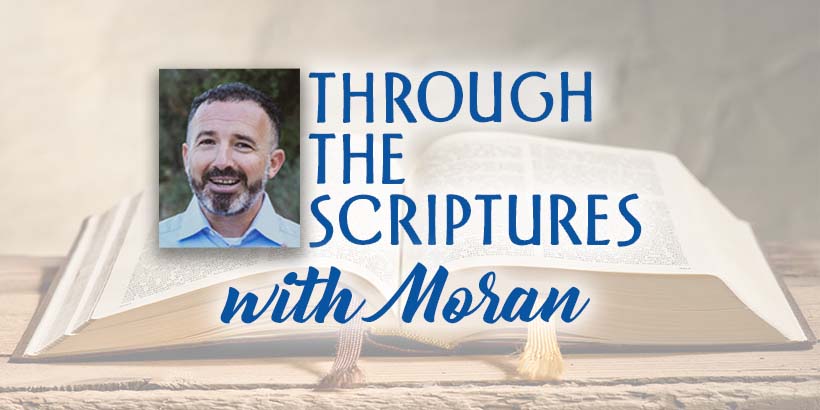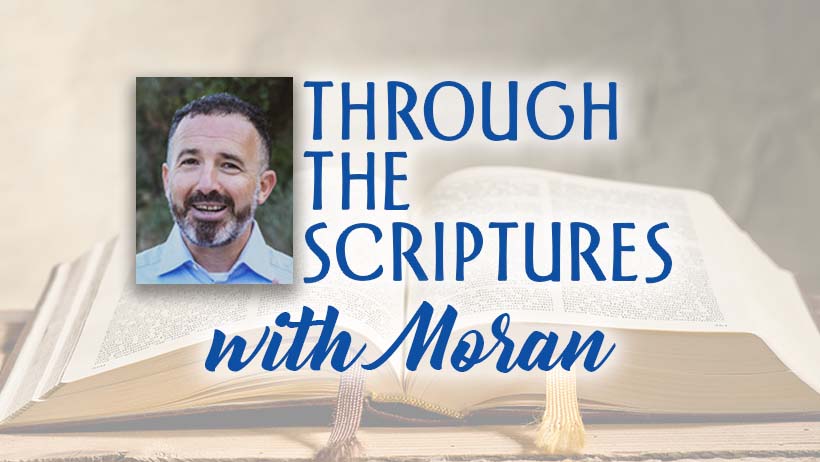
Parashat Nitzavim (Standing)
D’varim (Deuteronomy) 29:9-30:20
Haftarah: Isaiah 61:10-63:9
This week’s reading begins with a sobering truth: the day will come when each of us will stand before God. Not one of us can escape it. The Scriptures remind us again and again that every person will give an account of his life before the God of Israel.
I said some years ago that the issue of Israel would become a dividing line among those who claim to follow the one true God. Today we are living in that reality. Confusion, compromise, and false teachings abound, especially about God’s eternal covenant with Israel. Many have turned away from His Word, trading truth for lies that fit human agendas.
Yet in this portion, we encounter the unshakable foundation: it is all from Him, and all for Him. Israel’s disobedience led to scattering, yes, but God’s Word is equally clear that restoration is certain. His compassion is stronger than our rebellion, and His promises cannot be broken:
So it will be when all of these things have come upon you, the blessing and the curse which I have placed before you, and you call them to mind in all the nations where the LORD your God has scattered you, and you return to the LORD your God and obey Him with all your heart and soul in accordance with everything that I am commanding you today, you and your sons, then the LORD your God will restore you from captivity, and have compassion on you, and will gather you again from all the peoples where the LORD your God has scattered you. If any of your scattered countrymen are at the ends of the earth, from there the LORD your God will gather you, and from there He will bring you back. The LORD your God will bring you into the land which your fathers inherited, and you shall inherit it; and He will be good to you and make you more numerous than your fathers. (emphasis mine)
Deuteronomy 30:1–5
To deny this is to deny God’s faithfulness itself.
Another truth we cannot miss: only God can circumcise the human heart. We cannot argue, manipulate, or persuade someone into loving Him. It is His work alone, and when He does it, no one else can take the credit:
Moreover, the LORD your God will circumcise your heart and the hearts of your descendants, to love the LORD your God with all your heart and all your soul, so that you may live.
Deuteronomy 30:6
When Peter declared to Yeshua, “You are the Messiah, the Son of the living God” (Matthew 16:16), Yeshua replied that he was blessed, “For no human being revealed this to you, no, it was My Father in heaven.” (Matthew 16:17). Once again, this shows us that it is God’s- and only God’s work - to open a person’s heart. And when He does, His Word is planted deep within us, shaping our lives:
On the contrary, the word is very close to you, in your mouth, even in your heart; therefore, you can do it! Look! I am presenting you today with, on the one hand, life and good; and on the other, death and evil.
Deuteronomy 30:14–15
As Isaiah proclaimed:
I will greatly rejoice in the LORD; my soul shall exult in my God, for He has clothed me with the garments of salvation; He has covered me with the robe of righteousness.
Isaiah 61:10
This is the miracle of grace. God Himself clothes us, restores us, and writes His Word on our hearts.
But then comes the question: what will you choose? God places before us life and death, blessing and curse. We cannot rewrite the narrative of God to suit our own desires. We cannot selectively accept parts of His plan while rejecting others.
Isaiah reminds us of the seriousness of this choice:
For the day of vengeance was in My heart, and the year of My redemption has come.
Isaiah 63:4
Both judgment and redemption are real. Both are near. And both flow from the same holy God.
So I ask again: what will you choose?
Shabbat Shalom,
Moran


2 Comments on “Standing Before God”
Such truth. Thank you for reminding us of OT words that are even more relevant today than ever. I pray for a revival – that God “will clothe us, restore us and writes His Holy Word on our hearts.” Thank you Moran for your faithfulness to God’s Word.
This is so very, very true. I just wrote a comment to this effect under an article about antisemitism and Israel. It comes down to believing God or not believing God. That’s the choice.
It’s sad and hard to see so many people choosing the darkness and wickedness. In the above-mentioned comment section, there were about 5 people on God’s side. The many comments from the enemy side were filled with hate and spite and anger. Their minds and hearts are closed.
Thank you for the reminder to ask God to soften and open their hearts to truth. I am praying this for my son.